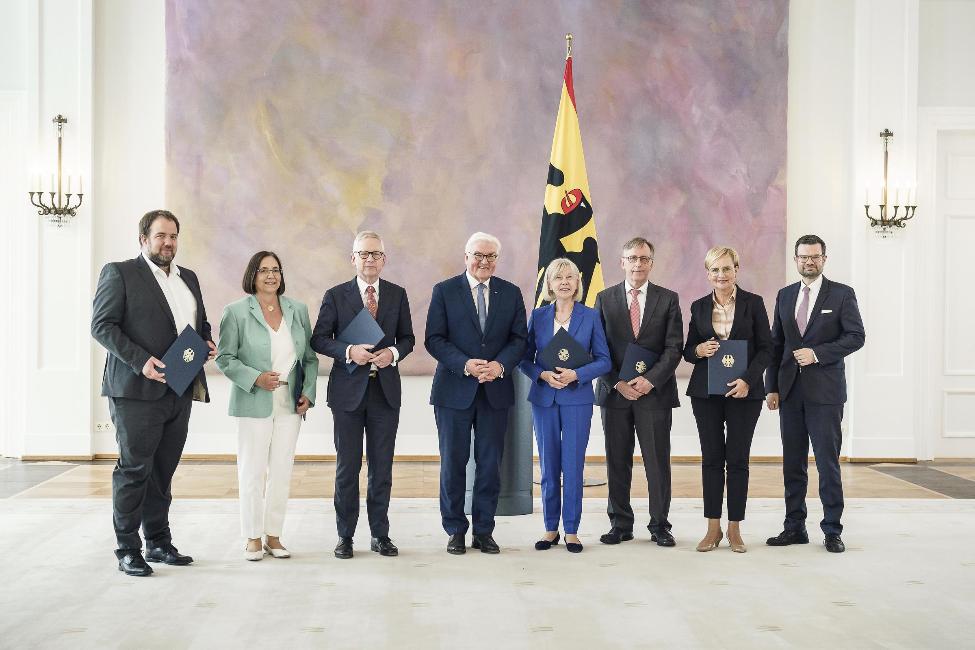Forming government/appointing, dismissing
In accordance with the Basic Law the Federal President is involved in the forming of the government as he proposes the Federal Chancellor for election (Article 63 (1) of the Basic Law) and appoints the person elected (Art. 63 (2) of the Basic Law).
The Federal Ministers are also appointed and dismissed by him upon the proposal of the Federal Chancellor (Art. 64 (1) of the Basic Law). Furthermore he appoints and dismisses federal judges, federal civil servants, and commissioned and non-commissioned officers, except as may otherwise be provided by a law (Art. 60 (1) of the Basic Law). In many cases it is incumbent upon him to appoint committees and other bodies - often upon the proposal of the Federal Government or other state agencies (for example appointing the members of the German Council of Economic Experts, nominating the board of the President Friedrich Ebert Memorial).
The Federal President decides the day on which the election to the German Bundestag will be held (Art. 16 sentence 1 of the Federal Electoral Law). He approves the rules of procedure of the Federal Government and possible amendments (Art. 65 sentence 4 of the Basic Law). Furthermore he is responsible for promulgating the determination of the Bundestag or the Joint Committee of the Bundestag with the consent of the Bundesrat that the state of defence has begun or been terminated. (Art. 115a (3), Art. 115 l (2) of the Basic Law).
Promulgating laws
After countersigning by the relevant Federal Minister and the Federal Chancellor, the federal laws are signed by the Federal President (promulgation). Before doing so he has to check that they have been adopted in line with the provisions of the Basic Law. Practice and prevailing opinion mean this procedure has formal aspects (procedural provisions in the Basic Law) and material aspects (fundamental rights, definition of the aims of the state, the right of organization of the state). To date there have been eight occasions on which a Federal President has declined to promulgate a law. After promulgation by the Federal President, the laws are published in the Federal Law Gazette (Art. 82 (1) of the Basic Law).
Power to pardon
According to Article 60 (2) of the Basic Law the Federal President exercises the power to pardon. This means he has the authority to revoke or commute penal or disciplinary sentences in individual cases. The Federal President cannot, however, issue an amnesty waiving or commuting sentences for a whole category of offences. That requires a law enacted by the German Bundestag in conjunction with the Bundesrat. Due to the federal structure of Germany the Federal President is only responsible for dealing with certain criminal matters (e.g. espionage and terrorism) and disciplinary proceedings against federal civil servants, federal judges and soldiers. For other offences, the power to pardon lies with the federal Land which exercises jurisdiction.


